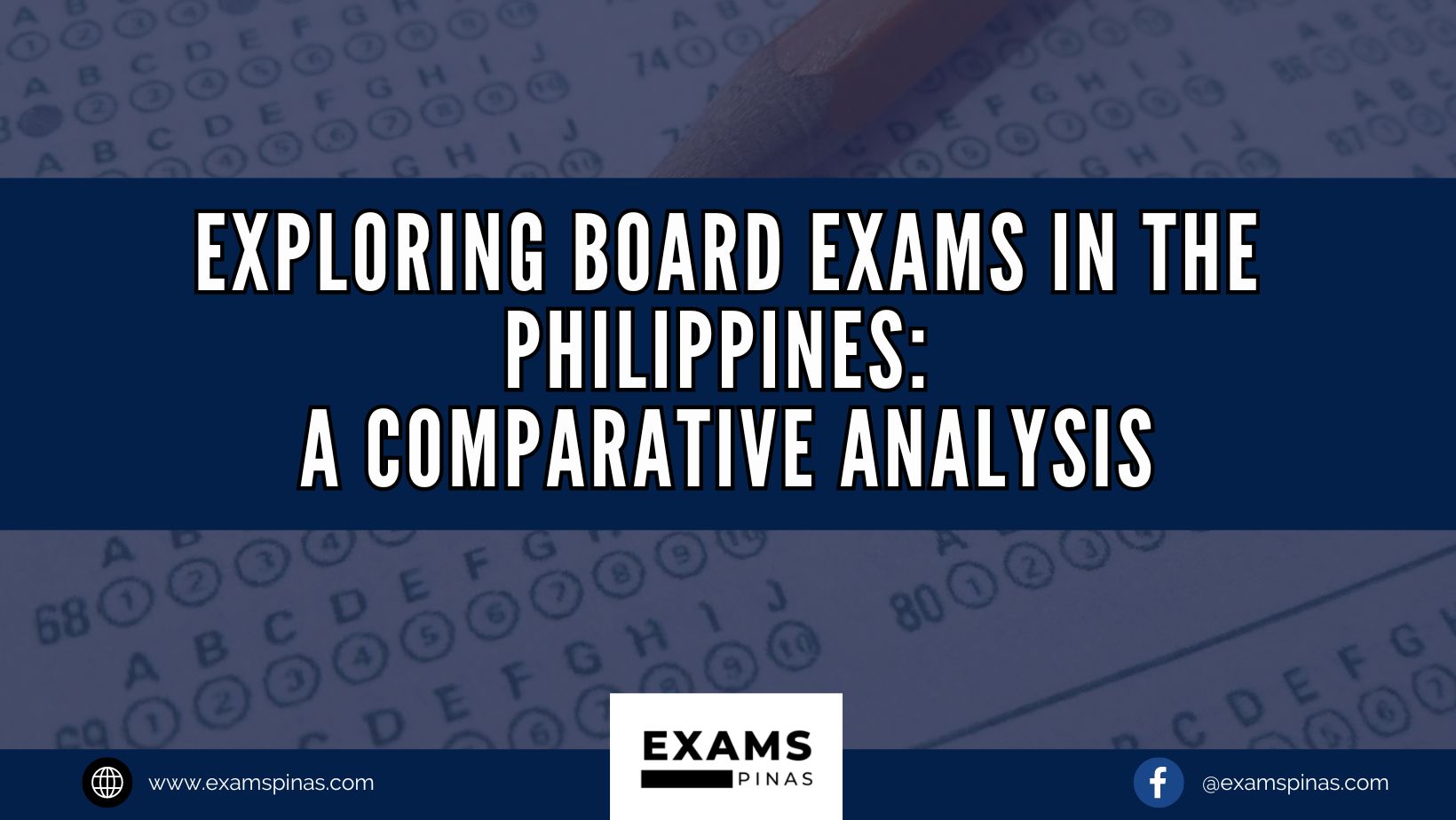In the realm of professional development and career advancement in the Philippines, board exams serve as significant milestones for individuals pursuing careers in diverse fields. From medicine to engineering and accountancy, these examinations represent rigorous assessments of knowledge, skills, and competencies essential for practitioners to excel in their respective professions.
Understanding Board Exams
Board exams, also known as licensure examinations, are standardized tests administered by regulatory bodies or professional organizations to assess the competence of individuals seeking to practice in specific professions. These exams play a crucial role in ensuring public safety, maintaining industry standards, and upholding professional integrity.
Comparing Board Exams Across Professions: Medicine, Engineering, and Accountancy
Medicine
Board exams for medical professionals, such as physicians and nurses, are among the most challenging and rigorous assessments in the Philippines. These exams typically consist of written and practical components, covering a wide range of medical knowledge, clinical skills, and ethical principles. Medical professionals must demonstrate proficiency in areas such as anatomy, physiology, pharmacology, diagnostics, and patient care. The licensure exam for physicians, commonly known as the Physician Licensure Examination, is conducted by the Professional Regulation Commission (PRC) and requires thorough preparation and dedication.
Engineering
Engineering board exams assess the technical knowledge, problem-solving abilities, and ethical standards of aspiring engineers. The exams vary depending on the specific field of engineering, such as civil engineering, mechanical engineering, electrical engineering, and chemical engineering. Candidates are tested on fundamental principles, engineering theories, design methodologies, and practical applications relevant to their chosen specialization. The licensure exam for engineers is administered by the Board of Engineering under the supervision of the PRC.
Accountancy
Accountancy board exams evaluate the proficiency of individuals in accounting principles, financial reporting, auditing standards, taxation laws, and ethical practices. Aspiring accountants must demonstrate comprehensive understanding and application of accounting concepts, regulations, and industry standards. The licensure exam for accountants, known as the Certified Public Accountant (CPA) Board Exam, is conducted by the Board of Accountancy and is a prerequisite for practicing accountancy in the Philippines.
Exploring Similarities and Differences
While board exams across professions share common objectives of assessing competence and ensuring professional standards, they also exhibit distinct characteristics and challenges specific to each field.
- Content Coverage: Board exams in medicine encompass a broad spectrum of medical disciplines and specialties, requiring in-depth knowledge of human anatomy, physiology, pathology, and clinical practice. Engineering exams focus on mathematical principles, scientific theories, and engineering applications relevant to the chosen specialization. Accountancy exams emphasize financial reporting standards, taxation laws, auditing procedures, and ethical guidelines.
- Examination Format: The format of board exams varies across professions, with some consisting of multiple-choice questions, essay prompts, practical demonstrations, or oral examinations. Medical exams often include clinical simulations, patient case studies, and practical assessments of diagnostic and treatment skills. Engineering exams may involve problem-solving exercises, design projects, and technical calculations. Accountancy exams feature complex financial scenarios, auditing simulations, and regulatory compliance assessments.
- Preparation and Review: Candidates preparing for board exams invest significant time, effort, and resources in comprehensive review programs, review materials, practice tests, and mentorship. Medical professionals engage in clinical rotations, medical internships, and residency programs to gain hands-on experience and practical skills. Engineers participate in laboratory experiments, design projects, and research initiatives to apply theoretical knowledge to real-world challenges. Accountants undergo intensive study sessions, accounting seminars, and mock exams to reinforce conceptual understanding and analytical skills.
In conclusion, board exams play a pivotal role in shaping the professional landscape and ensuring the competence and integrity of practitioners in the Philippines. By comparing board exams across professions such as medicine, engineering, and accountancy, we gain insights into the diverse challenges, competencies, and opportunities inherent in each field. Aspiring professionals must recognize the unique demands of their chosen professions, invest in continuous learning and development, and uphold the highest standards of ethics and professionalism. Through diligent preparation, dedication, and commitment to excellence, individuals can navigate the complexities of board exams and embark on fulfilling and successful careers in their respective fields.

